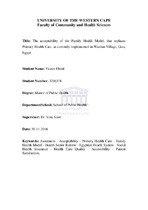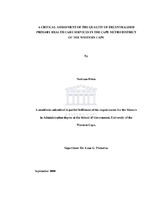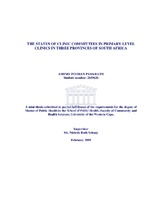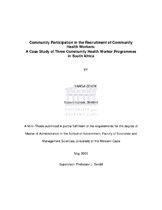| dc.description.abstract | Introduction: Health Sector Reform was initiated as a component of the Structural
Adjustment Policies that were imposed on the developing countries by the
international monetary organizations such as the International Monetary Fund and the World Bank during the 1980s and the 1990s. It included three main components, that is, financing reforms, decentralization and introducing competition to the health sector. Changes to the Egyptian health system were introduced in the 1980s through the cost recovery projects, while the Health Sector Reform Program was announced in 1997. This culminated in a change from a Primary Health Care model to a Family Health Model as regards the Primary Health Care sector of the Egyptian health system. Changes in the health systems have profound effects on people, so that it is essential to study the ongoing transformation of the Egyptian health system and its implications. Aim: The aim of the current study was to determine the acceptability of the Family Health Model, which replaces Primary Health Care, as currently implemented in Wardan Village, Giza, Egypt. Methodology: The study was a cross sectional survey utilizing a structured
questionnaire that was used to determine the awareness and perception/satisfaction of the community members in an Egyptian rural area (Wardan village, Giza
Governorate) towards the transformation from primary health care to family health
model. 357 subjects participated in this study. Results: Awareness of the study participants towards the transformation process was 15.6%. The overall satisfaction with the family health unit by the participants was 80.5% compared with 35.7% for the old PHC one. Higher satisfaction was associated with older age (p=0.02), less education (p<0.001), being married in the past or present (p=0.02), working status (p=0.007), and more years of using the unit (p<0.001). Acceptability of the family health model among the participants of the current study was high at 88.3%. Higher score of acceptability were associated with less education (p<0.001), being or have been married (p=0.048), and with working status (p=0.005). 93.8% of the participants think that family health unit services are accessible and 79.9% of the participants think that the family health unit provides quality services. Conclusion: The Family Health Model has achieved successes when implemented but encountered some difficulties that have limited the gains and interfered with some
of its aspects. The current study has shown that the Family Health Unit has gained a
high score of satisfaction and acceptability by the study participants, although the
awareness of the study participants about the transformation of the Primary Health
Care Model to a Family Health Model was low. | en_US |




